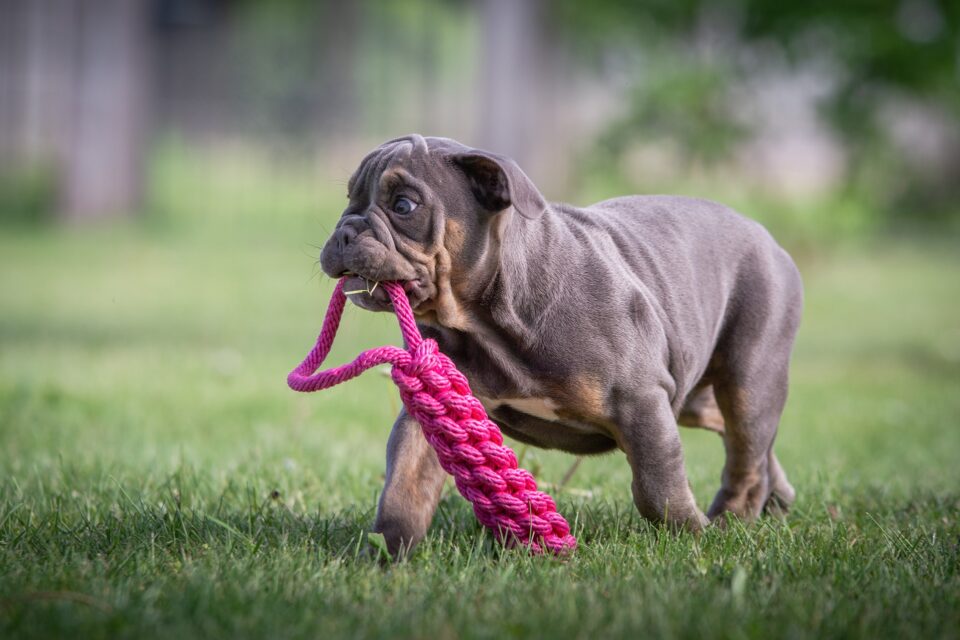
4 Eco-Friendly Tips for New Bulldog Owners

*Collaborative Post
Bringing home any new family member requires a lot of preparation. While we often think about this in the context of new babies or even relationships, the same can be true for a new puppy in the home. From securing dangerous areas to buying all of the essentials for a healthy pup, it’s important not to be impulsive.
Likewise, a new bulldog pup can mean a variety of decisions as an owner and consumer that may not necessarily be great for the environment. Bulldogs are special dogs and require special care, but so does the environment!
As such, let’s examine four eco-friendly tips you can use to improve the sustainability of your new family bulldog addition.
Adopt from a Shelter
Given the explosion of popularity of owning dogs and cats throughout the world, the breeding community has also grown but with this comes the addition of the increase of our carbon footprint (vets trips, breeders visiting one another, potential customers visiting) as well as new extra waste from food packaging, newspaper/bedding, worming packaging and so on. So it can seem that purchasing a bulldog from a standard breeding facility is anything but eco-friendly. Finding a nice bulldog pup at your local shelter helps to ensure that sustainable levels of the dog populations are maintained, local shelters are not inundated with too many unwanted pets, and even minimises your carbon footprint with regard to procuring your new pup.

Use Ethical Dog Food Options
Not all dog food options are created equal. Some utilise inferior ingredients and rely solely on grains, while others have energy inefficient production methods that further damage the environment.
As a new bulldog owner, choosing to buy ethical and sustainable dog food products instead is a huge step in the right direction.
Take Bella & Duke as one notable example. Their ethical raw food products ensure maximum nutrition for puppies and dogs alike, rather than utilising cheap and widely available ingredients produced by unsustainable factories and farms. This article “Key Diet & Health Tips For Your French Bulldog” will give you a good overview of everything you need to know. Ultimately, there are several different paths a bulldog owner can take in pursuing ethical dog food options, depending on how much they prioritize sustainability, local availability, nutrition, and cost.
Reuse Where Possible
How much do we throw away as dog owners? You might be surprised. While the stats are not available in the UK, the average US dog is now creating more waste than the average American did 60 years prior (according to Humane Society & US Census data). Many pet owners are contributing to a runaway effect with regard to dog ownership and waste.
Giving your bulldog a loving home with plenty of fun is possible through reusing a variety of items. You can build your pup a dog kennel with reclaimed timber and make creative toys out of products that would otherwise be thrown away. Once you start looking around, you’ll find all sorts of disposables that can be reused for, by or with your new bulldog – now that’s sustainable!

Neuter Your Bulldog
If your new bulldog doesn’t come from a shelter, then he or she may not be neutered. While various bulldog breeds are highly desirable, overpopulation is still a major concern. Ensuring that your bulldog – as well as any other pups in the home – are neutered simply reduces the number of unwanted pets placing strain on animal shelters and pet non-profits.
Neutering prices vary depending on location, gender, and weight, so check into local vet neutering rates ideally before you bring any bulldog home for the first time.
We all can do our part to minimise the environmental footprint we’re creating. These four eco-friendly tips are just a few of many steps you can take to be a more responsible new bulldog owner, guaranteeing a sustainable world for both you and our four-legged friends for decades to come.
*This is a collaborative post. For further information please refer to my disclosure page.
If you enjoyed this post you can follow more of our life, opinions and antics over on Facebook, Twitter, YouTube and Instagram. Plus feel free to come and join in with my parenting group ‘From One Parent to Another’ on Facebook.
If you’d like to contact me you can either leave me a comment or drop me a line via my contact me page.
For other topics similar to this one check out these suggestions below…




